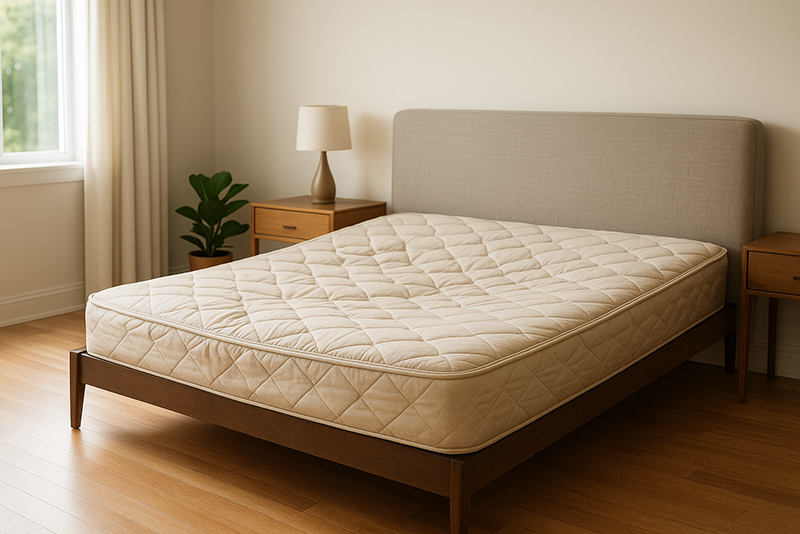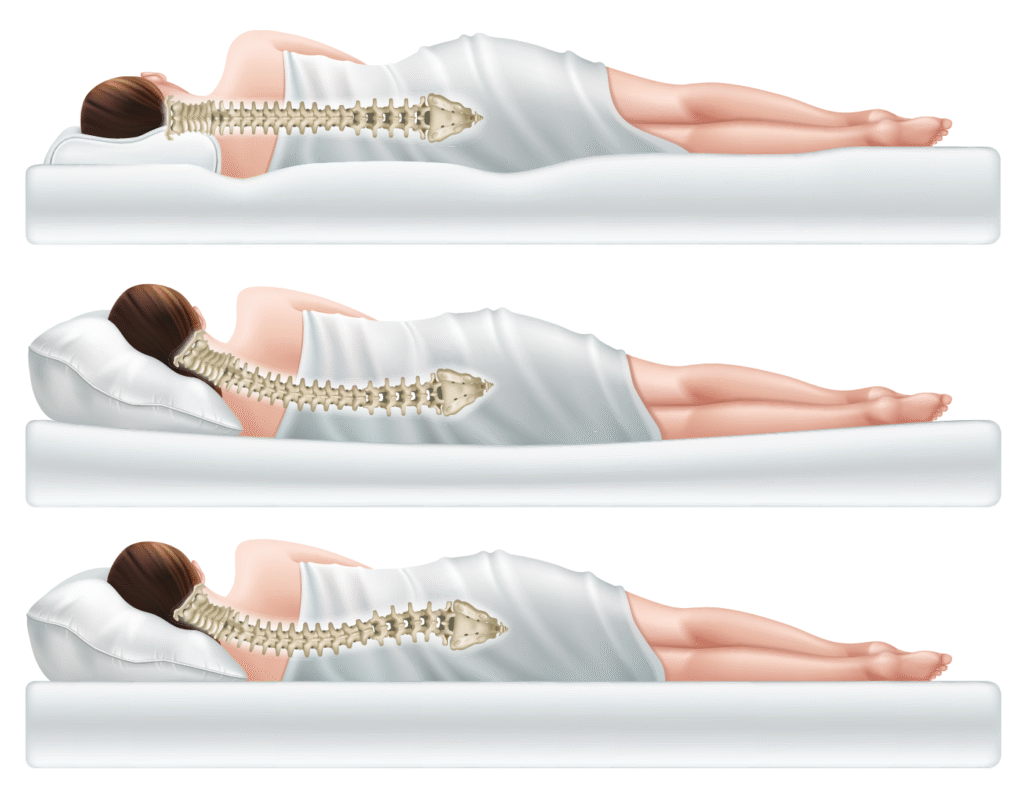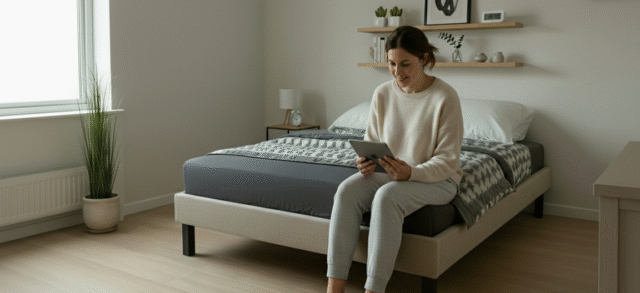Do you wake up feeling stiff, sore, or like you didn’t rest at all? Before blaming age, stress, or your posture, consider this: your bed might be the real culprit.
Here’s how to tell if your mattress or bed base is responsible for your morning discomfort and what you can do about it.
1. Your mattress sags or feels uneven
Look for:
-
dips where you sleep,
-
lumps,
-
or areas that feel uneven or slanted.
This means the mattress has lost its structure, forcing your muscles to work all night to compensate.

2. Your pain fades as the day goes on
If your morning back, hip, or shoulder pain gradually disappears during the day, it’s often a sign your bed isn’t supporting your body properly.
A proper bed should maintain natural spinal alignment, as outlined in our alignment guide.
3. You toss and turn constantly
Movement during sleep is normal, but constant repositioning usually signals discomfort. If you can’t find a stable position, your mattress may not be distributing pressure correctly.
Different sleep positions need different kinds of support, as our sleeping positions guide explains.



4. Your bed base is worn or unstable
The mattress isn’t always the problem, sometimes it’s the base underneath. A weak, noisy, or uneven base can compromise the entire sleep setup.
A solid base distributes weight evenly and helps with proper alignment. A platform such as the Level or Reflexx, or even an adjustable base, can make a huge difference.
5. You sleep better… elsewhere
If your back feels great after a night at a hotel, a guest room, or even your sofa, it’s a very strong sign your bed at home is failing you.
6. Your bed doesn’t match your current needs
Your body changes, your bed should adapt. For example:
-
Acid reflux and circulation issues benefit from adjustable bases.
-
The Zero-G position can ease lower-back pressure.
-
Side sleepers often need softer comfort at the shoulders.

7. Your mattress is more than 7–10 years old
Even a good mattress has a limited lifespan. After 7 to 10 years, the materials lose some of their resilience, especially if the support wasn’t optimal to begin with.
Of course, some mattresses last longer, but it is better to pay attention to the signs than to end up with painful mornings.
How to fix the issue
✔ Evaluate your bed base
A new platform or adjustable base can completely change your comfort.
✔ Choose a mattress suited to your sleep style
Firmness, posture, and body type matter.
✔ Think in terms of a system
Mattress + bed base = one team.
✔ Test before you buy
Your body will be your best guide.
In short
If your mornings start with pain, your bed might be the culprit and the good news is, you can change that. A well-supported sleep is not a luxury. It’s something you feel every single day.
.





